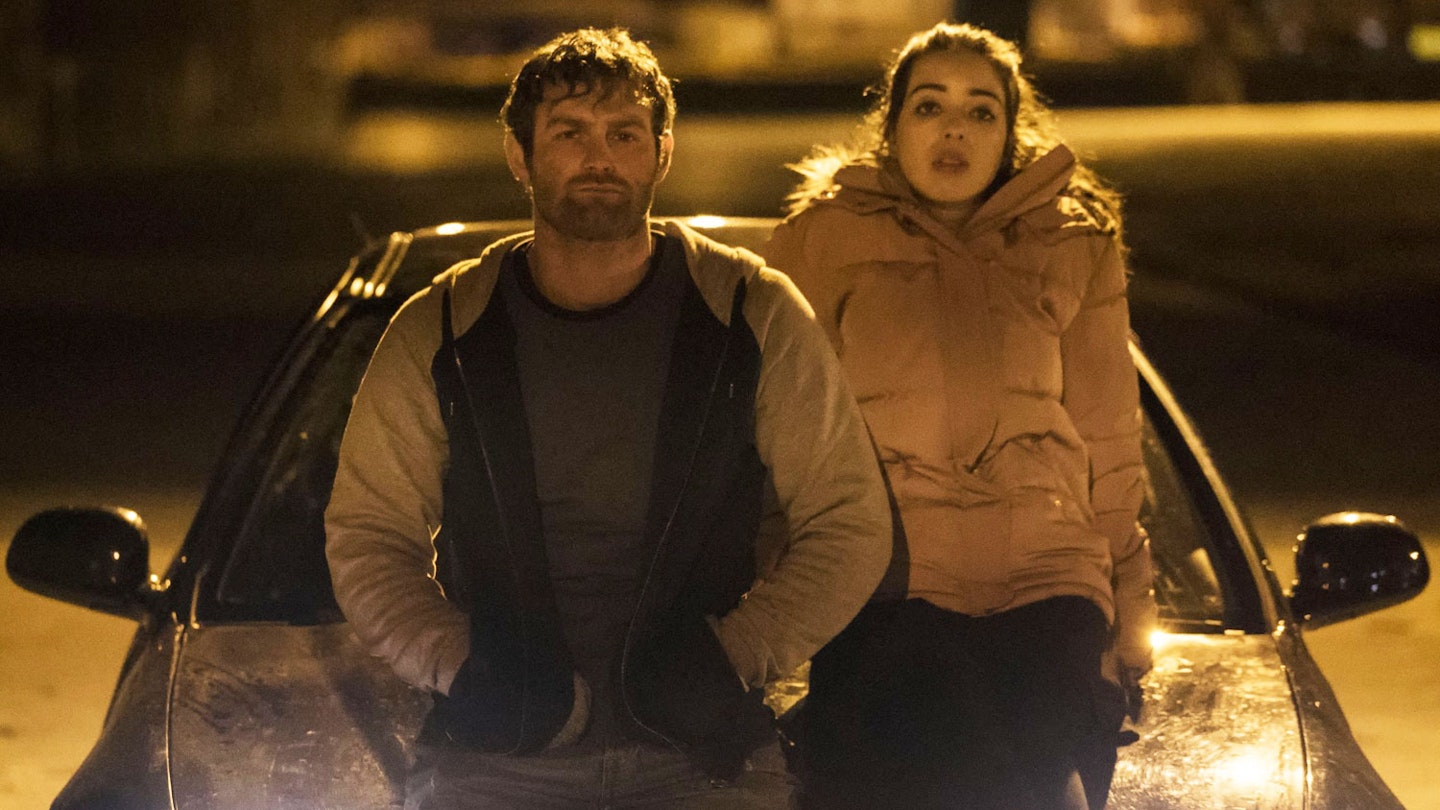You don’t have dramatic films riffing on Bruce Springsteen’s mythos for ages and then two come along — in an open-topped car — at once. Following Jim Cummings’ Thunder Road and Gurinder Chadha’s Blinded By The Light (not to mention Springsteen’s own Western Stars concert film), Scott Graham’s Run is the Boss’ lyrics and ethos made cinematic, a paean to small-town dreams and the pull of the open road. It’s a well made, heartfelt effort without the story and substance to really hit home.
Following Shell and Iona, Run is the third spoke in Graham’s triptych of moody Scottish-based miserabilism. This time round, it’s set in the bleak fishing port of Fraserburgh (the director’s home town) following former boy racer Finnie (Mark Stanley) who, despite having dreams in his youth, is still stuck in the fish processing factory he hates. Married to Katie (Amy Manson), he sees his former self in his teenage son Kid (Anders Hayward), a livewire who has just been fired from the factory and broken up with pregnant girlfriend Kelly (Marli Siu). At this point, Run goes full Brooce. Finnie takes Kid’s car and sneaks out in search of a last-chance power drive, picking up Kelly on the way. What follows is a long night of bruised romantics hankering for a way out but with nowhere to go.
Seemingly taking a leaf from George Lucas’ American Graffiti, Graham and cinematographer Simon Tindall lend a luminous quality to Finnie and Kelly’s odyssey, suffused with orange street lights and oil-slicked roads. Game Of Thrones’ Stanley, a lot better here than in the recent Sulphur & White, infuses Finnie with an inarticulate pent-up rage, while Anna And The Apocalypse’s Siu gives Kelly both energy and tenderness. But, if it works as a portrait of going-nowhere lives, it doesn’t really work as a drama. The break for freedom ends up being repetitive and uneventful, while the sense of an open-road movie feels hemmed in by the constraints of Scotland. And for all its ‘Born To Run’ stylings — a quote at the beginning, Finnie and his wife have matching tattoos — you could really do with hearing the song for maximum effect.

